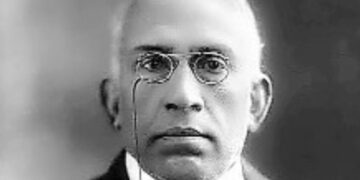After the Uttar Pradesh government imposed a state-wide ban on halal-certified edible items, the Food Safety and Drug Administration conducted raids in various parts of the state. The team is consistently inspecting halal-certified edible products in malls and local stores.
Time and again, a significant portion of society and news reports have raised questions about this highly lucrative Halal Certification system. However, not many people are aware that behind this matter of so-called ‘faith,’ there is a deeper game at play.
Yogi Adityanath led Uttar Pradesh government recently launched a state-wide crackdown on the ‘production, storage, distribution, and sale of halal-certified items’. The Food Commissioner’s Office then issued an order for the ban to take immediate effect. This action comes in the wake of an FIR against four organizations primarily accused of issuing “illegal” Halal certificates for retail products in the state.
Following this a case was registered against certain manufacturing companies and their owners as part of a significant anti-national conspiracy and alleged funding of terror outfits. The Halal-certifying industries under scrutiny include Halal India Private Limited in Chennai, the Jamiat Ulema e Hind Halal Trust in New Delhi, Halal Council of India in Mumbai, and Jamiat Ulema in Mumbai.
The Uttar Pradesh government has revealed that the complainant raised concerns about a possible large-scale conspiracy designed to diminish the sale of products from companies lacking the required Halal certification, which is illegal. The government explicitly mentioned, ‘The issuance of Halal certificates for vegetarian products such as oil, soap, toothpaste, and honey, where no such certification is necessary, implies a deliberate criminal conspiracy targeting a specific community and its products.’
Under the guise of religion, there is an ongoing pursuit of “unrestrained propaganda” within a specific section of society aimed at discouraging the use of products lacking a halal certificate. This ultimately harms the business interests of other communities.
Now, the question arises: how did the halal network, initially designed for the meat industry, expand its reach into every possible sector, ranging from marketing and hotels to the investment sector? Halal-certifying organizations have steadily dominated the market over the years, impacting the economy and influencing society. On one hand, non-Muslims might be unaware of the economic impact on their ideology; on the other, we have gradually allowed the halal business to consume us.
Why do we need a Halal certificate anyway? what is the justification behind the certification apart from religious convictions? Does accepting Halal certificates on products, mean the existing government certifications on consumer products like ISI, and FSSAI are not enough? The answer is NO.
Halal certification, in contrast, comes from religious Islamic organizations, like the Jamiat Ulema e Hind, known for their expertise in providing legal assistance to illegal activities and mostly terrorists.
In Bharat, none of the government agencies are involved in issuing halal certificates. Only specific private organizations issue halal certifications, and it’s important to note that the Bhartiya government does not endorse any of these organizations.
While government certifications cover quality and safety, Halal certification specifically caters to religious beneficial needs. It’s not about the inadequacy of existing certifications but addressing a different aspect related to religious practices. However, the credibility of any certification, including Halal, depends on the organization issuing it. So, when there are concerns about associations like those of the Jamiat Ulema i Hind, scrutiny of certifying bodies becomes essential to maintain trust and ensure the integrity of the certification process.
The Food and Agriculture Organization (FAO) of the United Nations defines Halal Food as that which is permitted under Islamic Law.
The Bhartiya government neither mandates halal certification nor does it provide a unifying regulatory law. The Food Safety and Standard Authority of India’s (FSSAI) standard certification is the requirement for consumer edible products, according to the United States Department of Agriculture.
In simpler words, FSSAI doesn’t give Halal certificates. There are these religious bodies that issue the so-called certificate to products, deciding their ‘purity’ as per the Islamic faith. The government of Bharat is allowing bodies affiliated with one particular religion to issue the quality of supposed religious purity and admissibility to consumer products.
Now imagine Sikhs, Jains, and Buddhists demanding consumer goods to be ‘certified’ fit for consumption only after they have been okayed by their respective religious authorities. What if the majority of Hindus demand it too? The question is if one community demands Halal certification on products, and the government allows it, what is going to stop other communities from demanding similar certifications?
Since Halal is a religious attestation in Bharat, the government neither mandates halal certification nor provides a unifying regulatory law. This is why Products of Patanjali, the Aashirvaad Atta, MTR Instant Foods, and more are halal-certified products.
Even Himalaya products are halal-certified. Last year, a post by the Himalaya company was published claiming that its goods adhere to Islamic law and are therefore halal certified. This led to a boycott of Himalaya goods that became popular on social media last year, and the organization had to bear the brunt of the backlash for adhering to the Halal business.
Yet, it prompts us to think why self-reliant brands such as Patanjali, Himalayan, several hotel chains, and lately the investment sector are subtly being encouraged to pursue Halal certification.
Halal- Not Restricted to Non-Veg Items
Halal, an Arabic term loosely translated as “Permissible,” holds significance in Islam, referring to any object or act sanctioned and approved according to Islamic jurisprudence. It stands in contrast to the term in the Quran and the Hadith—Haram, meaning “Forbidden.” Halal is often linked with stringent laws for Muslims. Any item processed, procured, and traded under Islamic beliefs is ‘Halal’.
Halal economy extends beyond meat, encompassing a broader range of products. It is not just restricted to meat products as in the case of Himalaya or Patanjali. As the concept of Halal is entering other industries, it has come to represent extremism. This religious obsession has alarmingly, extended into sectors such as cosmetics, pharmaceuticals, medicines, personal care, and more.
For a food item to be deemed as Halal, it must not only come from a Halal source but also be free from non-Halal ingredients, such as pork and alcohol in Islam. Even vegetarian food and seafood can be considered Halal if they do not contain alcohol.
As an example, a regular McDonald’s burger in the USA and Pakistan may appear similar, smell alike, and taste the same, but the former is considered haram, and the latter is Halal due to its compliance with Islamic guidelines for animal slaughtering.
Similarly, when someone is hungry, they might steal a piece of bread or purchase a piece of bread to eat. The apparent result may seem the same, but one is permissible in Shariah, while the other is not allowed.
Halal Culture Is Discriminatory
The Halal sector is one of the fastest-growing industries but is also one of the most discriminatory.
Built on Islamic principles, the Halal industry is reshaping the global economy for its benefit while primarily benefiting only Muslims encouraging a parallel economy. This is due to what is known as ‘Halal certification.’ For a meat product to be Halal certified, the entire chain—from production and financing to manufacturing and distribution—must only involve Muslims for the product to be termed ‘Halal.’
With its ever-growing scope, it is creating the grounds for restricting the job prospects in these sectors to people from only one religion. Further, this parallel system of certification runs without any checks and balances from the government.
For a meat product to be halal, the animal must be slaughtered only by a Muslim. To achieve economies of scale, the meat industry ends up operating large-scale abattoirs to produce all their meat. They end up using only Muslims at these abattoirs as it has simply become cheaper to produce all their meat together, instead of running separate abattoirs for halal and non-halal meat. In such a scenario, many Hindu communities, especially some Dalits, who were traditionally butchers, miss out on employment opportunities in the sector.
Affecting economy | For the product to be termed ‘Halal’, it must only involve Muslims – “Halal Certification”
According to a report by Market Data Forecast, governance and financing in this sector happen through Islamic Banking and Financing Systems. The report also projects that the $2.2 billion global Islamic finance market will grow to $3.02 billion by 2027.
It’s a whole industry where employment opportunities in certain sectors are completely unavailable to non-Muslims. It’s not only discriminatory towards people of the Hindu faith but also Christianity, Buddhism, Sikhism, and others. Considering the meat industry is worth several Billion dollars, this is a huge sector where only people from one religion are finding jobs because of halal policies. Many Hindu communities, especially Dalits, who were traditionally butchers, have over time lost the basic employment opportunities in the sector.
What’s concerning is that it is a sector where job opportunities in specific areas are exclusively limited to individuals who follow Islam. This bias affects not just individuals of the Hindu religion but also those of Christianity, Buddhism, Sikhism, and other faiths.
Terror-funding
According to several reports, the global halal economy is worth a little over $2 trillion. In Bharat, the halal economy is worth around $100 billion and is growing rapidly.
Unlike Gulf nations, Bharat does not have any official regulator or body for the certification of halal products. These certifications are given by some unregulated bodies like Halal India and Jamiat-Ulama-e-Hind Halal Trust.
But the question is where is this huge amount of Halal money being used for!!
The clear idea of starting something as ‘halal certification’ is to divert the money of the country to Islamic organizations so that it can be used by them to fight the case of the terrorists who are behind bars.
An organization like Jamiat-Ulama-i-Hind, one of the oldest halal certifying trusts in Bharat, is constantly in the news for their legal support to the accused in terror-related cases. Even in murder cases, like in the case of Hindu leader Kamlesh Tiwari, who was brutally killed in his office in Lucknow in 2019, this Halal Certification company extended all possible legal and financial help to his killers.
From bomb blasts to such terror funding cases, the organization has been extending legal support to the accused while fighting terror-related cases on behalf of the accused Muslim extremists. A large part of these funds, come from the fees they charge for halal certification.
So even without realizing it, people in Bharat unintentionally end up paying the legal fees of terrorists and criminals by consuming halal products, even though there is no religious requirement for them to do so.
Since halal certification is oozing into other industries as well, it is resulting in the dominance of Muslims, while others remain unemployed in such sectors. Thus, Halal is not a mere dietary preference, it is a way of ensuring employment for people from the same community.
These concerns need to be addressed on a global scale. Bharat is home to the second-largest Muslim population with more than 21 crore Muslims according to Pew Research as of July 2022. We Indians, mostly Hindus, believe that for an item to be considered halal, it has to contain non-vegetarian ingredients. However, a common act of spitting food by Muslims is considered halal, and non-Muslims unknowingly consume it. Lately, as the realization of this fact is growing, non-Muslims are taking a stand against the same.
Even if we keep reiterating a thousand times that Bharat is a secular nation, we can’t deny the fact that certain religions are imposing their religious beliefs upon us and we knowingly and unknowingly comply with them. A Muslim belief of consuming only halal-certified products has now been imposed on everyone else and also shows how Hinduphobia is deeply ingrained in their minds.
It is pertinent to note here that halal business was created as a means of establishing Muslim dominance over the rest of the globe and shifting the global economy in their favor. Meanwhile, what is important to remember is that those who choose to consume halal items may continue to do so. However, others must be aware if they are being compelled to follow suit. Informed awareness and a determined effort are all that’s needed to prevent any single religion from exerting control over crores of beliefs and the entire ecosystem.
















Comments